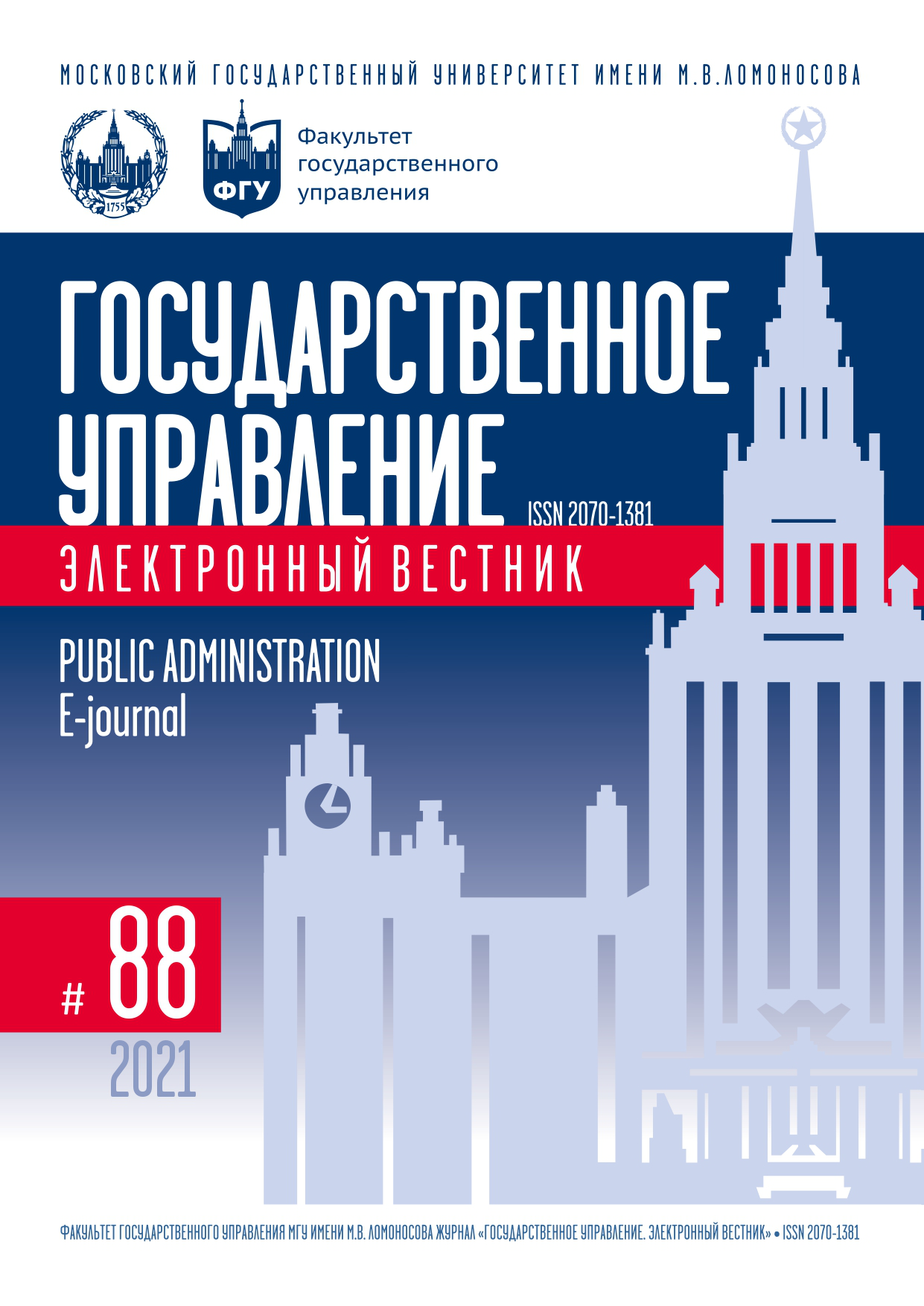Administrative problems: theory and practice
Keywords:
Child well-being index, children, Russian regions, monitoring of state of children, subjective well-beingAbstract
The study focuses on the methodology for assessing the level of child well-being. Based on the directions of the Plan of Priority Actions until 2027 for the implementation of the Decade of Childhood programme, following the recommendations of UNICEF experts, using the available and several planned new indicators, a multidimensional index of child well-being and an index of subjective child well-being have been developed to assess the situation of children and adolescents in Russia as a whole and in the Russian regions. The article summarizes international experience in constructing such indices, outlines the principles and the algorithm for developing indices of child well-being within the framework of the Decade of Childhood programme, presents the structures of the two indices, and a construction of the index of child well-being using Rosstat census, current account and sample survey data. We test the child well-being index using two methods: based on averaging the ranks of the regions and on calculating z-scores. Comparable ratings of the regions according to the child well-being index have been obtained. The indices are based on the principle of considering different types of results of implementing the Decade of Childhood programme to highlight the most important outcomes that should become key in assessing the situation of children, the emphasis was placed on child interest’s priority. In addition to developing and published statistical indicators, the article proposes perspective indicators that will improve the assessment of child well-being. According to the authors, the developed indices will allow not only to track the effectiveness of activities carried out within the framework of the Decade of Childhood, but also to monitor the situation of children and adolescents in various spheres of life in the Russian regions.
References
Калабихина И.Е., Кучмаева О.В. Мониторинг участия детей в принятии решений, затрагивающих их интересы // Вопросы статистики. 2013. № 10. С. 29–35.
Aber J.L., Jones S. Indicators of Positive Development in Early Childhood: Improving Concepts and Measures // Hauser R.M., Brown B.V., Prosser W.R. (eds.) Indicators of Children’s Well-Being. New York: Russell Sage Foundation, 1997. P. 395 408.
Amerijckx G., Humblet P.C. Child well‐being: What does it mean? // Children & Society. 2014. Vol. 28. No. 5. P. 404–415. DOI: https://doi.org/10.1111/chso.12003.
Ben-Arieh A. Beyond Welfare: Measuring and Monitoring the State of Children: New Trends and Domains // Social Indicators Research. 2000. Vol. 52. P. 235–257. DOI: https://doi.org/10.1023/A:1007009414348.
Ben-Arieh A. Measuring and Monitoring the Well-Being of Young Children around the World // Education for All Global Monitoring Report. 2007. P. 9–22.
Ben-Arieh A., Casas F., Frønes I., Korbin J. Multifaceted Concept of Child Well-Being // Ben-Arieh A.,
Casas F., Frønes I., Korbin J. (eds.) Handbook of Child Well-Being. Springer, Dordrecht, 2014. P. 1–27. DOI: https://doi.org/10.1007/978-90-481-9063-8_134.
Exenberger S., Banzer R., Christy J., Höfer S., Juen B. Eastern and Western Children’s Voices on their Well-Being // Child Indicators Research. 2019. Vol. 12. P. 747–768. DOI: https://doi.org/10.1007/s12187-018-9541-8.
Garris B.R., Weber A.J. Relationships Influence Health: Family Theory in Health-Care Research // Journal of Family Theory & Review. 2018. Vol. 10. P. 712–734. DOI: https://doi.org/10.1111/jftr.12294.
Jiang S., Ngai S. Assessing Multiple Domains of Child Well-Being: Preliminary Development and Validation of the Multidimensional Child Well-Being Scale (MCWBS) // Current Psychology. 2020. DOI: https://doi.org/10.1007/s12144-020-01063-x.
Lansford J.E., Ben Brik A., Al Fara H.A. Framework for Child Well-Being in the Gulf Countries // Child Indicators Research. 2019. Vol. 12. P. 1971–1987. DOI: https://doi.org/10.1007/s12187-019-9620-5
Moore K.A., Halle T.G. Preventing Problems Vs. Promoting the Positive: What Do We Want for Our Children? // Advances in Life Course Research. 2001. Vol. 6. P. 141–170. DOI: https://doi.org/10.1016/S1040-2608(01)80009-5.
Moore K.A., Lippman L., Brown B. Indicators of Child Well-Being: The Promise for Positive Youth Development // The ANNALS of the American Academy of Political and Social Science. 2004. Vol. 591. Is. 1. P. 125–145. DOI: https://doi.org/10.1177/0002716203260103.
Moore K.A., Theokas C., Lippman L., Bloch M., Vandivere S., O’Hare W. A Microdata Child Well-Being Index: Conceptualization, Creation, And Findings // Child Indicators Research. 2008. Vol. 1. Is. 1. P. 17–50. DOI: https://doi.org/10.1007/s12187-007-9000-4.
Rees G., Dinisman T. Comparing Children’s Experiences and Evaluations of Their Lives in 11 Different Countries // Child Indicators Research. 2015. Vol. 8. P. 5–31. DOI: https://doi.org/10.1007/s12187-014-9291-1.
Roehlkepartain E., Pekel K., Syvertsen A., Sethi J., Sullivan T., Scales P. Relationships First: Creating Connections That Help Young People Thrive. Minneapolis, MN: Search Institute, 2017.

